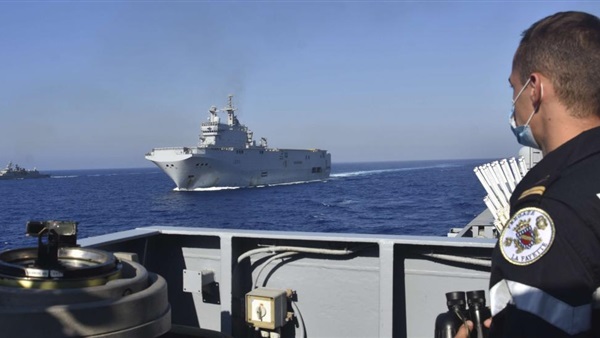East Med conflict could set off a ‘Euro-Middle Eastern maelstrom

The latest cycle of escalation in the Eastern
Mediterranean risks spiralling into a multinational conflict setting off a
Euro-Middle Eastern maelstrom, wrote Michael Tanchum, a fellow at the Truman
Research Institute for the Advancement of Peace at Hebrew University.
The region’s powers and the West are facing off
against Ankara, which is driving the most explosive naval stand-off the region
has witnessed in two decades, Tanchum wrote in the Foreign Policy Magazine on
Tuesday.
Turkey last week dispatched a research ship
conducting seismic surveys in disputed waters of the eastern Mediterranean,
stirring a row with Greece. France has since moved naval assets into the area
while he EU has called for an immediate halt to Turkey’s activities in the
region. Egypt and Israel have also expressed their support for Athens in the
conflict.
The Eastern Mediterranean maritime boundary disputes
were for decades a local affair limited to disagreement between Cyprus, Greece,
and Turkey, Tanchum said, but with the conflict grew wider with the discovery
of the massive Zohr natural gas field in Egyptian maritime territory in August
2015.
“The largest Eastern Mediterranean gas find to date,
Zohr’s advent meant the region suddenly collectively had marketable volumes of
natural gas,’’ the analyst wrote.
The subsequent plan by Italian ENI, which discovered
the Zohr field, “to pool Cypriot, Egyptian, and Israeli gas and use Egypt’s
liquefaction plants to cost-effectively market the region’s gas to Europe as
liquified natural gas (LNG),” effectively scrapped Turkey’s plans to become a
regional energy hub, the article said.
That, in turn, prompted Turkey to engage in a series
of measured exercises of gunboat diplomacy, sending exploration and drillships
into contested Cypriot water, which in turn, provided the
“Egypt-Israel-Cyprus-Greece front increasingly gained military support from
France, Italy, and the United States,” Tanchum said.
Fast-forward to today and Turkey is faced with a
front including Egypt, Israel and the EU over its most recent activities in the
region, a row that kicked off last week when the country dispatched the Oruç
Reis vessel.
A serious de-escalation process between Turkey and
Greece requires a third party intervention that will push Ankara and Athens
into serious talks, Tanchum wrote, noting that hope has appeared in the region
by way of the United States, which is looking to achieve a cease-fire and
buffer zone in war-torn Libya.





